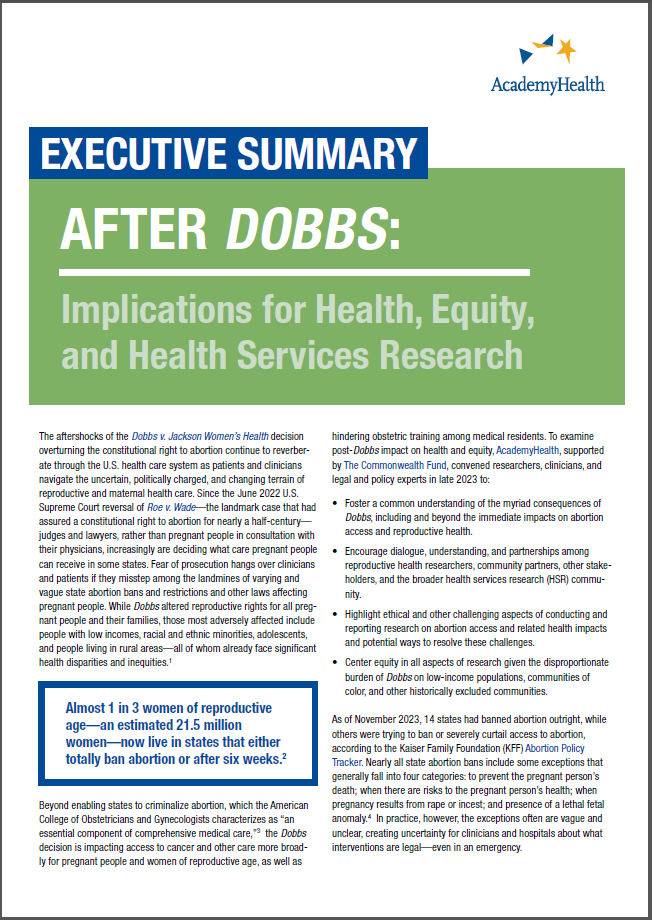
After Dobbs: Implications for Health, Equity, and Health Services Research: Executive Summary
This executive summary provides an overview of the discussion and research agenda generated during a November 2023 discussion among reproductive justice experts, health services researchers, patient advocates, funders, and others convened by AcademyHealth.
Since the U.S. Supreme Court overturned Roe v. Wade in 2022, the autonomy of pregnant people to make health care decisions in partnership with their physicians has diminished. Nearly 1 in 3 women of reproductive age—an estimated 21.5 million people—live in states that now either totally ban abortion or restrict access after six weeks, and those most adversely affected by the Dobbs decision curtailing reproductive rights are those with low incomes, racial and ethnic minorities, adolescents, and people living in rural areas—all of whom already face significant health disparities and inequities.
A November 2023 workshop convened by AcademyHealth and supported by The Commonwealth Fund gathered approximately 80 members of the reproductive health and health services research communities, including community-based organizations, advocates, and funders, to examine the impact of Dobbs on health and equity.
This brief summarizes that discussion, including the legal context and background of access to abortion; the broad and sometimes unintended consequences of Dobbs; the role of state policy in access to reproductive and other health care for pregnant people and those of reproductive age; and research considerations. An appendix follows, detailing considerations for conducting such research with an equity lens and priority research questions across six domains:
- Access, availability, and safety of abortion services.
- Other reproductive health care, including maternal and perinatal care and outcomes.
- Non-reproductive health care and outcomes, including mental and behavioral health, disability, and chronic disease.
- Health care workforce implications, including training impacts, reproductive health deserts, and clinician burnout.
- Care financing and delivery issues, including Medicaid, safety-net providers such as federally qualified health centers, and data privacy.
- Broader societal impacts, including employment, education, and poverty.
Download the Executive Summary above or click here for the full report.